What You Need to Know Before Becoming an Electrical Engineer in the Aviation Field
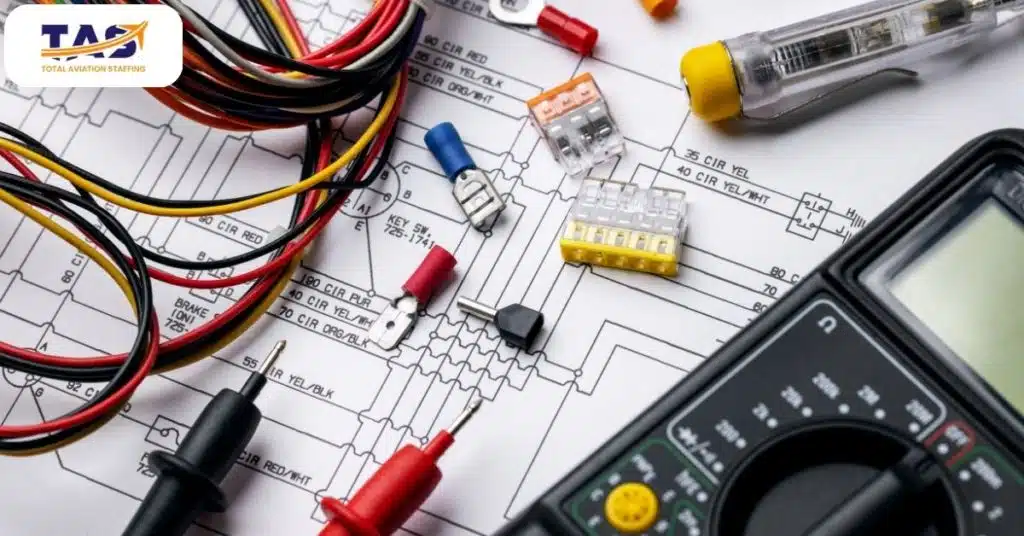
Are you interested in becoming an electrical engineer in the aviation field? If so, then you need to know what it takes to succeed in this challenging and rewarding career path. From understanding the various components of aircraft’s electrical systems to learning about the regulations governing the industry, there are many topics that should be researched before embarking on this journey. In this blog, we’ll provide an overview of what you need to know before becoming an electrical engineer in the aviation field. We’ll cover topics such as the educational requirements for the job, the different types of aircraft and electrical systems, and specialized certifications that may be required. With this information, you can start to develop the knowledge and skills needed to make your dream a reality. Let’s get started!
1. Knowledge of Aviation Principles, Aircraft Systems, and Components
Before becoming an electrical engineer in the aviation field, one must possess comprehensive knowledge of aviation principles and aviation regulations, as well as an understanding of aircraft systems, components, and related technologies. This knowledge should extend beyond electrician engineering skills to include aircraft safety protocols, airworthiness standards, and aviation trends.
A detailed overview of aviation safety practices is essential for electrical engineers looking to enter the aviation field; this includes having a deep understanding of aviation policies such as Passenger and Crew Safety Guidelines mandated by the Federal Aviation Administration (FAA). Certification as a qualified electrical engineer may be required depending on the type of work performed; acquiring FAA certification in airplane mechanics or avionics could open new doors within the aviation industry.
In this field, identifying potential hazards is also paramount if disastrous outcomes are to be avoided. Familiarity with safety tools used to address hazardous aviation scenarios is essential prior to decide whether this career path is right for you.
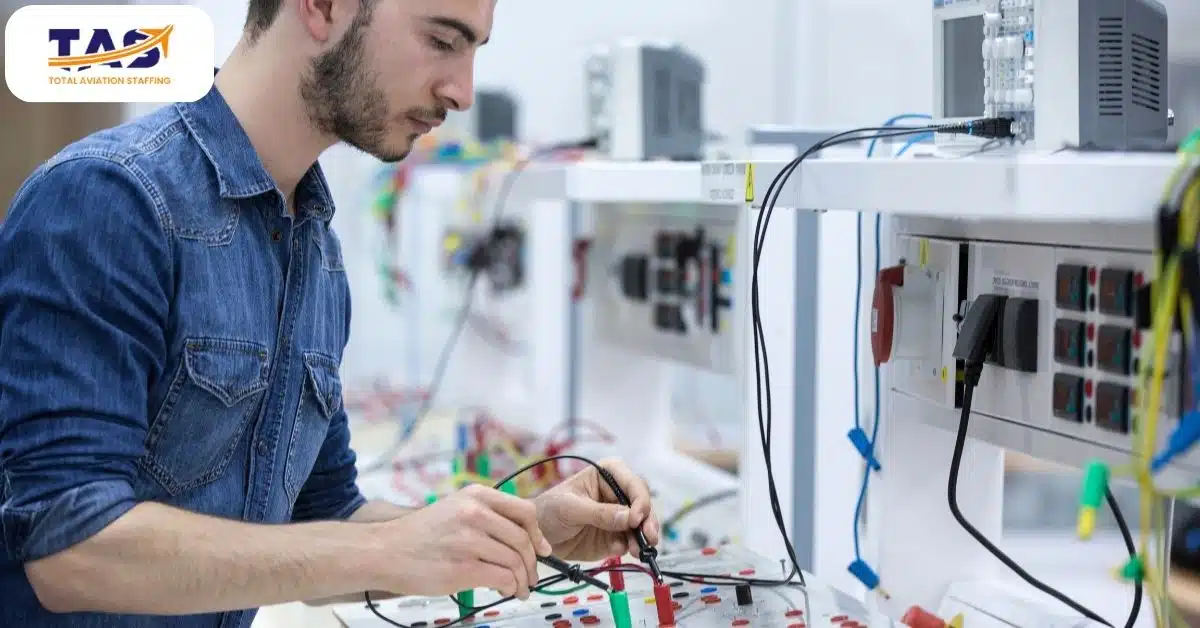
2. Understanding of Electrical Engineering Fundamentals
A career as an aviation electrical engineer is rewarding and fulfilling, but it requires a deep understanding of the many fundamentals of electrical engineering that are essential for aviation-related systems. To be successful in the aviation engineering field, you need to understand the basics of designing, building, and maintaining electrical networks, from simple circuits to complex control systems.
You must be able to read circuit diagrams and install wiring properly. Additionally, knowledge of aviation regulations and standards is beneficial. Understanding electronics principles such as capacitance, resistivity, power flow, and voltage/amperage ratings are also important. Familiarity with sensors and instrumentation used in aviation will make a potential engineer more desirable to employers.
If you have expertise in these areas and are prepared to work hard to meet aviation safety standards then you’ll be well-positioned for success as an aviation electrical engineer.
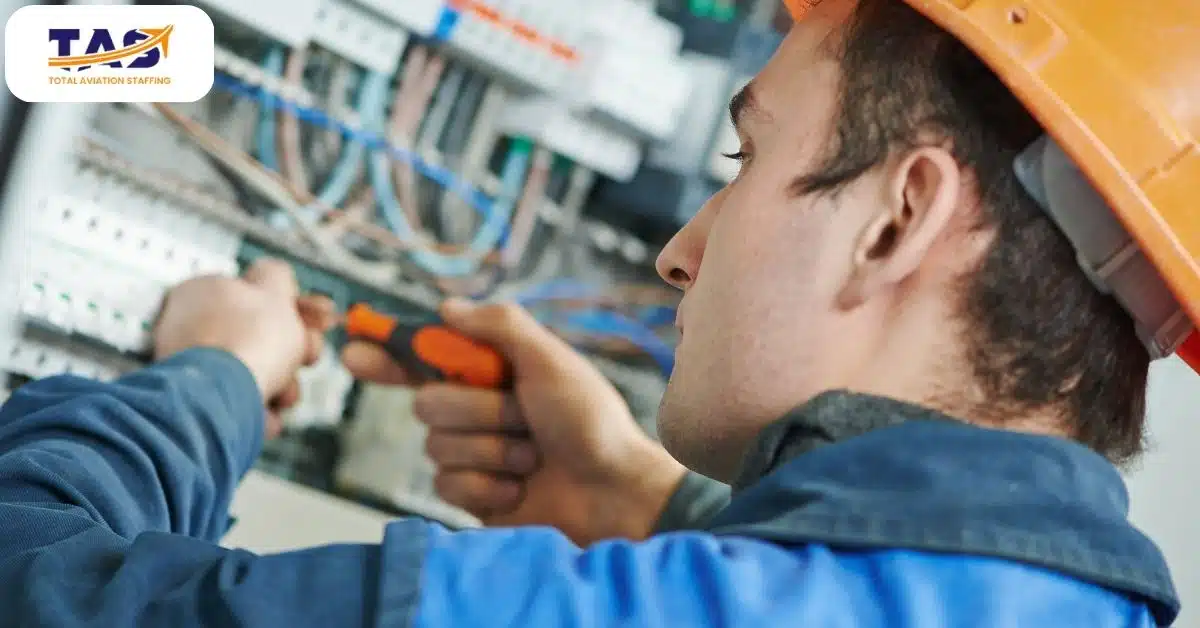
3. Strong Analytical, Problem-Solving, and Troubleshooting Skills
The ability to analyze and troubleshoot complex problems quickly and accurately is essential for any electrical engineer in the aviation field. The ability to think abstractly and draw conclusions based on limited information is invaluable.
Keeping up with ever-evolving technologies requires strong problem-solving skills as well because engineers must be able to come up with innovative solutions to any issues that arise. The ability to troubleshoot efficiently is essential; a well-rounded engineer will be able to identify the root cause of technical issues quickly and effectively.
Having a strong foundation in mathematics, physics, and engineering principles help immensely when it comes to problem-solving within aviation systems.
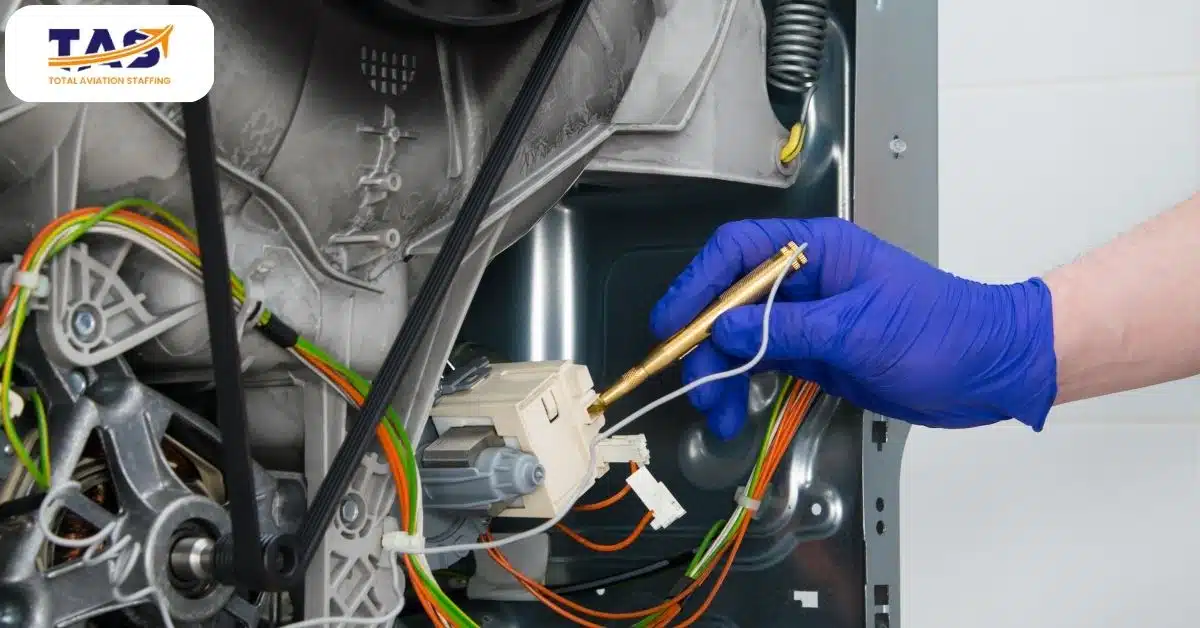
4. Excellent Communication & Interpersonal Skills
Aviation electrical engineers must have excellent communication and interpersonal skills in order to effectively interact with their colleagues, customers, and supervisors. Engineers are often required to explain complex technical concepts in layman’s terms and discuss solutions that could be applied to aviation-related problems.
In addition to strong written and verbal communication abilities, engineers will benefit from having strong active listening skills to ensure they understand their customer’s needs. Engineers must also be able to work well in collaborative environments, as the aviation industry is highly competitive and requires a team approach to problem-solving.
Having the ability to prioritize tasks effectively can help engineers stay organized and on track with projects.

5. Ability to Read and Interpret Electrical Diagrams
Aviation electrical engineers must be able to read and interpret electric diagrams accurately in order to effectively diagnose and troubleshoot systems. Knowing how to use schematic symbols, circuit diagrams, ladder logic diagrams, and other related documents is essential for an engineer’s success in this field.
Understanding the principles of electricity as well as common wiring techniques will help engineers to identify and repair any electrical problems quickly. Additionally, being able to read and understand technical manuals will help engineers become familiar with the aircraft system they are working on and stay up to date on any changes or updates.
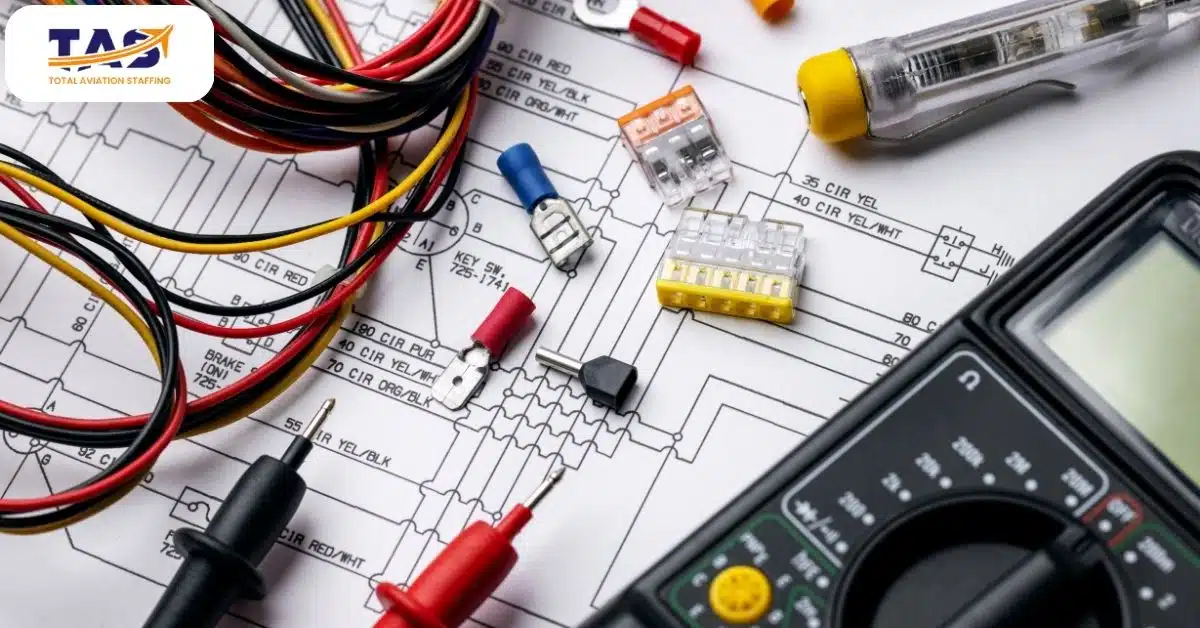
6. Familiarity With Computer-Aided Design (Cad) Software Programs
In the aviation industry, engineers are expected to use computer-aided design (CAD) software programs to create and test new or existing designs. CAD software allows engineers to accurately simulate their designs in a virtual environment before they are implemented in real life.
Familiarity with common CAD programs such as SolidWorks, AutoCAD, and CATIA is important for any aviation electrical engineer. Engineers must be able to create detailed blueprints, models, and diagrams with the help of these programs in order to accurately represent their designs.
By using CAD software, engineers can minimize potential engineering mistakes and ensure that all designs are safe and reliable. This will ultimately lead to an improved and more efficient aircraft design.

7. Knowledge of Regulations Set by the Federal Aviation Administration (FAA)
Aviation electrical engineers must be aware of the regulations set by the Federal Aviation Administration (FAA). It is essential for engineers to familiarize themselves with FAA guidelines and regulations in order to ensure aircraft designs are safe and meet all standards.
By understanding and following these guidelines, engineers can ensure that their designs are compliant and don’t pose any risks to aircraft passengers and crew. This knowledge will also help engineers design innovative systems that are efficient, cost-effective, and meet all safety requirements.
Aviation electrical engineers can become an integral part of the aviation industry by providing reliable designs for commercial and private aircraft. With a combination of technical knowledge, problem-solving skills, and communication abilities, engineers can propel the industry forward by creating aircraft designs that are reliable and innovative.
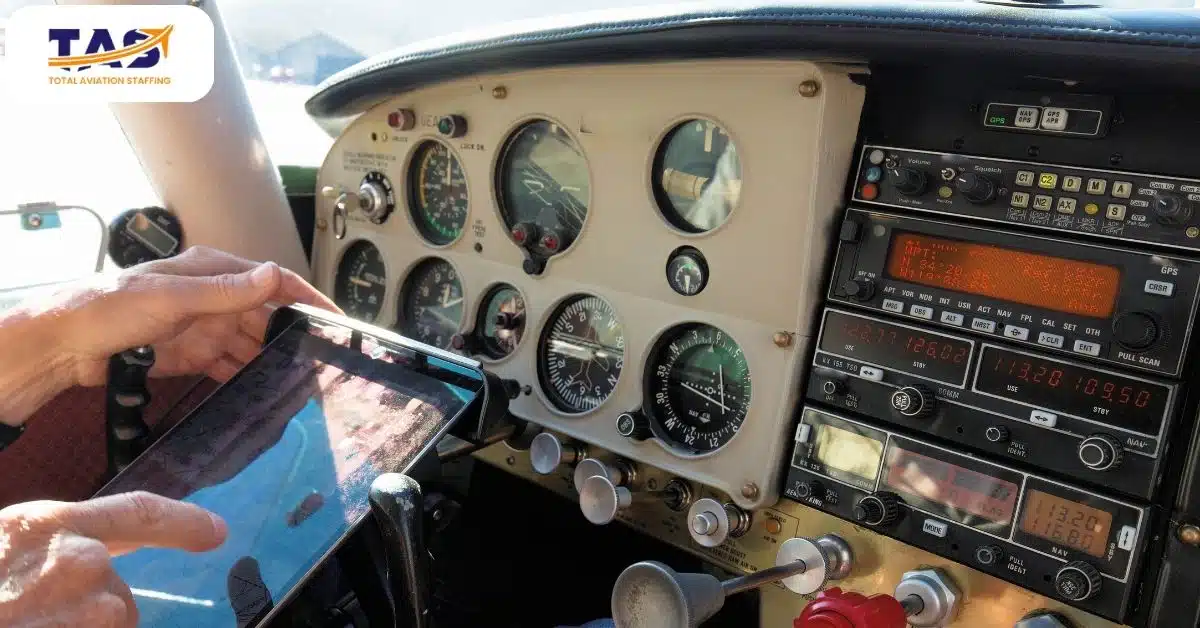
8. Familiarity With Wiring Installation, Testing Methods, and Maintenance Procedures
In addition to the knowledge of computers and regulations, aviation electrical engineers must be familiar with wiring installation, testing methods, and maintenance procedures. This includes understanding how to use common tools such as ohmmeters and multimeters in order to accurately diagnose any issues within an aircraft’s electrical system.
Engineers must also have a strong grasp of aircraft wiring diagrams and be able to accurately troubleshoot any issues related to electrical systems. This knowledge is essential for engineers in order to maintain aircraft and ensure the safety of passengers, crew, and equipment.
Aviation electrical engineers must understand how to identify potential safety hazards associated with aircraft design. By being aware of these possible issues, engineers can create solutions that are efficient and reliable to ensure the safety of all passengers and crew.

9. Ability to Work Independently or in a Team Environment
Aviation electrical engineers must also have the ability to work independently or in a team environment. As part of a larger engineering team, it is important for engineers to be able to collaborate and communicate effectively with their peers.
It is essential for engineers to listen to other engineers’ ideas and be comfortable working with others in order to create the best possible aircraft designs. Having a strong team ethic is essential for engineers in the aviation industry as it allows them to produce safe and efficient aircraft models.
Being able to work independently is also important for aviation electrical engineers. Engineers must be comfortable working alone and have the ability to problem-solve and make decisions on their own. This is necessary in order to create innovative and reliable aircraft designs.
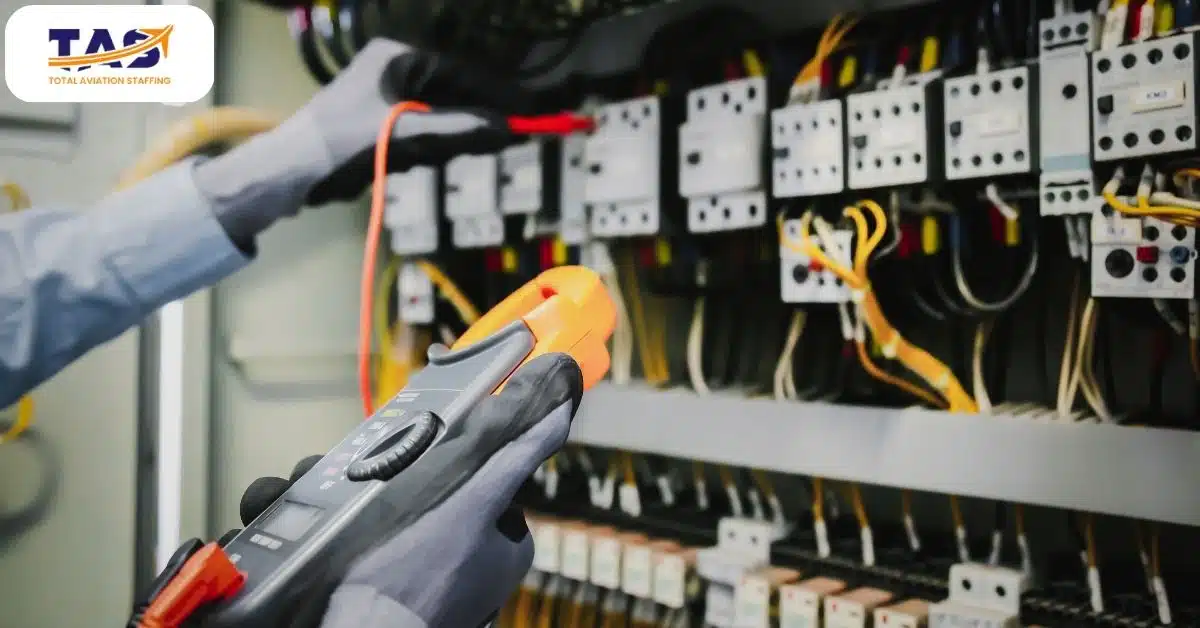
10. Good Communication Skills
Aviation electrical engineers must also have good communication skills. As part of a larger engineering team, it is essential for engineers to be able to effectively communicate and collaborate with colleagues in order to create the best possible aircraft designs.
Good communication skills are also important when dealing with clients, suppliers, regulatory bodies, or other stakeholders that may be involved in the aircraft design process. Having strong communication abilities, engineers can ensure that all parties involved are on the same page and understand any issues or changes being made to a design.
Having good communication skills is essential for aviation electrical engineers in order to create reliable and efficient aircraft designs. It is important for engineers to be able to effectively communicate and collaborate with their peers in order to create the best possible aircraft designs.

In Conclusion
Aviation electrical engineers play an integral role in the aviation industry by creating reliable and innovative aircraft designs. With a combination of technical knowledge, problem-solving skills, familiarity with wiring installation and testing methods, ability to work independently or in a team environment, and good communication skills, engineers are essential for ensuring the safety of passengers, crew, and equipment.
Becoming a successful aviation electrical engineer requires a strong commitment to learning and understanding the principles of engineering and aircraft design. With dedication and hard work, engineers can make an impact in the aviation industry by creating reliable aircraft designs that ensure the safety of passengers, crew, and equipment.
